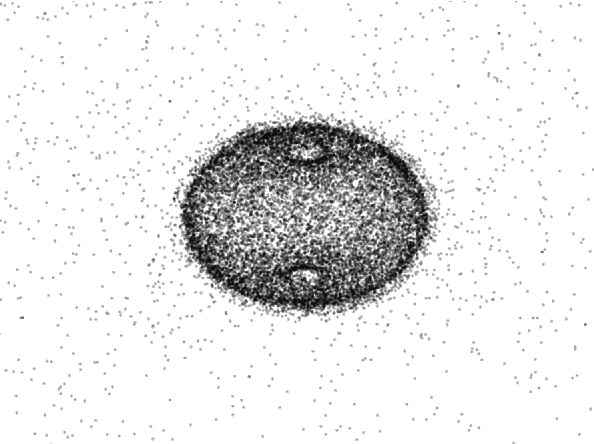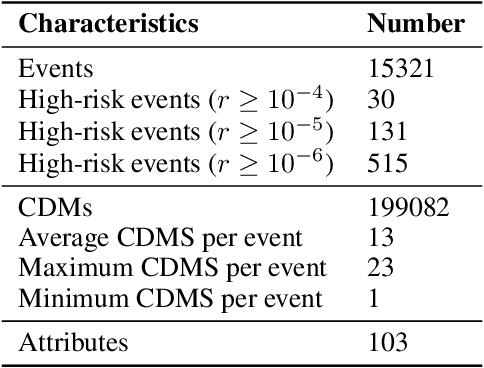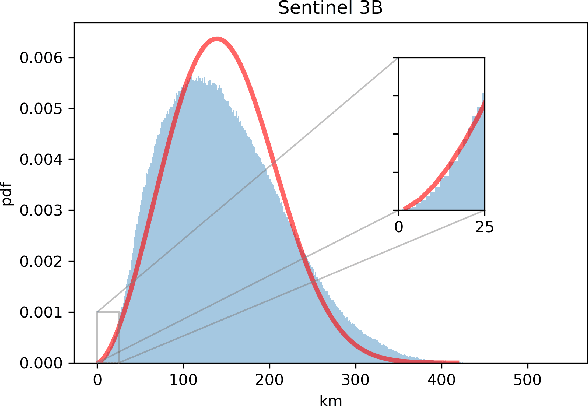Rasit Abay
Spacecraft Collision Avoidance Challenge: design and results of a machine learning competition
Aug 07, 2020



Abstract:Spacecraft collision avoidance procedures have become an essential part of satellite operations. Complex and constantly updated estimates of the collision risk between orbiting objects inform the various operators who can then plan risk mitigation measures. Such measures could be aided by the development of suitable machine learning models predicting, for example, the evolution of the collision risk in time. In an attempt to study this opportunity, the European Space Agency released, in October 2019, a large curated dataset containing information about close approach events, in the form of Conjunction Data Messages (CDMs), collected from 2015 to 2019. This dataset was used in the Spacecraft Collision Avoidance Challenge, a machine learning competition where participants had to build models to predict the final collision risk between orbiting objects. This paper describes the design and results of the competition and discusses the challenges and lessons learned when applying machine learning methods to this problem domain.
 Add to Chrome
Add to Chrome Add to Firefox
Add to Firefox Add to Edge
Add to Edge